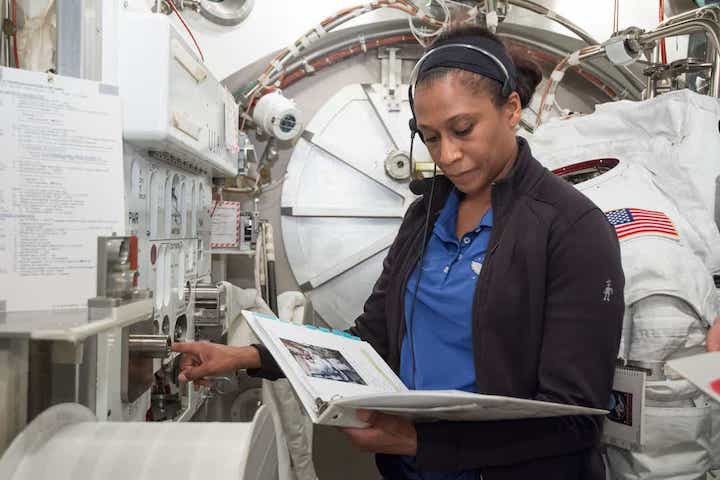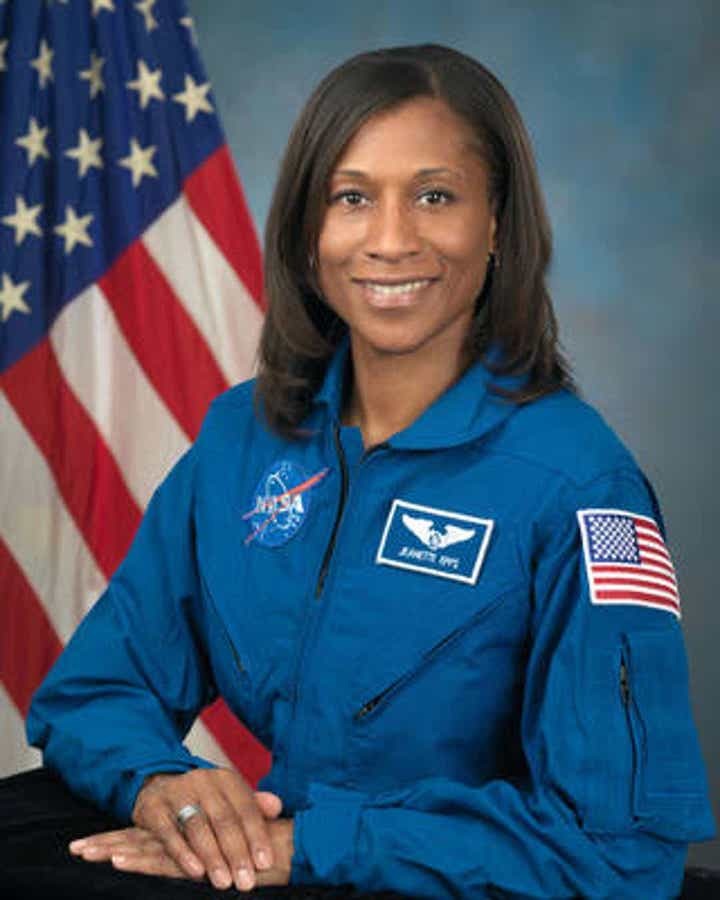26.08.2020

A third member has joined Boeing's first operational crewed flight to the International Space Station.
NASA announced Tuesday morning astronaut Jeanette Epps will join Sunita Williams and Josh Cassada on Boeing's Starliner-1 mission, which will mark the first operational crewed flight of the company's Starliner spacecraft following a successful uncrewed Orbital Flight Test and Crew Flight Test.
Boeing had conducted an uncrewed flight test of Starliner in December 2019, but after the capsule failed to arrive to the ISS due to a series of software issues, the company and NASA decided to repeat the orbital flight test, currently slated to happen later this year.
Epps, Williams and Cassada will embark on a six-month expedition on the ISS, which is expected to occur sometime in 2021.
This will mark Epps' first spaceflight, who is originally from Syracuse, New York. Before becoming a member of the 2009 astronaut class, Epps worked for the CIA as a technical intelligence officer for seven years.

Her crewmates, Williams and Cassada were selected for the Starliner-1 mission in August 2018. This will be Williams' third spaceflight and the first for Cassada.
SpaceX, meanwhile, already conducted its first crewed flight test, known as Demo-2, last May.
The company sent NASA astronauts Bob Behnken and Doug Hurley onboard its Crew Dragon capsule to the ISS, marking the first time astronauts were launched from U.S. soil since the shuttle program retired in 2011.
After two months onboard the space station, Behnken and Hurley safely splashed down off the coast of Pensacola, FL, in August and now, SpaceX and NASA are scheduled to launch its first operational crewed flight no earlier than Oct. 23 from Kennedy Space Center pad 39A.
That flight will send NASA astronauts Michael Hopkins, Victor Glover and Shannon Walker as well as Japan Aerospace Exploration Agency or JAXA astronaut Soichi Noguchi to stay on the ISS for a six-month science mission.
Quelle: Florida Today
+++
NASA has assigned astronaut Jeanette Epps to NASA’s Boeing Starliner-1 mission, the first operational crewed flight of Boeing’s CST-100 Starliner spacecraft on a mission to the International Space Station.
Epps will join NASA astronauts Sunita Williams and Josh Cassadafor a six-month expedition planned for a launch in 2021 to the orbiting space laboratory. The flight will follow NASA certification after a successful uncrewed Orbital Flight Test-2 and Crew Flight Test with astronauts.
The spaceflight will be the first for Epps, who earned a bachelor’s degree in physics in 1992 from LeMoyne College in her hometown of Syracuse, New York. She completed a master’s degree in science in 1994 and a doctorate in aerospace engineering in 2000, both from the University of Maryland, College Park.
While earning her doctorate, Epps was a NASA Graduate Student Researchers Project fellow, authoring several journal and conference articles on her research. After completing graduate school, she worked in a research laboratory for more than two years, co-authoring several patents, before the Central Intelligence Agency (CIA) recruited her. She spent seven years as a CIA technical intelligence officer before her selection as a member of the 2009 astronaut class.
NASA assigned Williams and Cassada to the Starliner-1 mission in August 2018. The spaceflight will be the first for Cassada and third for Williams, who spent long-duration stays aboard the space station on Expeditions 14/15 and 32/33.
NASA’s Commercial Crew Program is working with the American aerospace industry as companies develop and operate a new generation of spacecraft and launch systems capable of carrying crews to low-Earth orbit and to the space station. Commercial transportation to and from the station will provide expanded utility, additional research time and broader opportunities for discovery on the orbital outpost.
For nearly 20 years, the station has served as a critical testbed for NASA to understand and overcome the challenges of long-duration spaceflight. As commercial companies focus on providing human transportation services to and from low-Earth orbit, NASA will concentrate its focus on building spacecraft and rockets for deep-space missions.
Quelle: NASA

